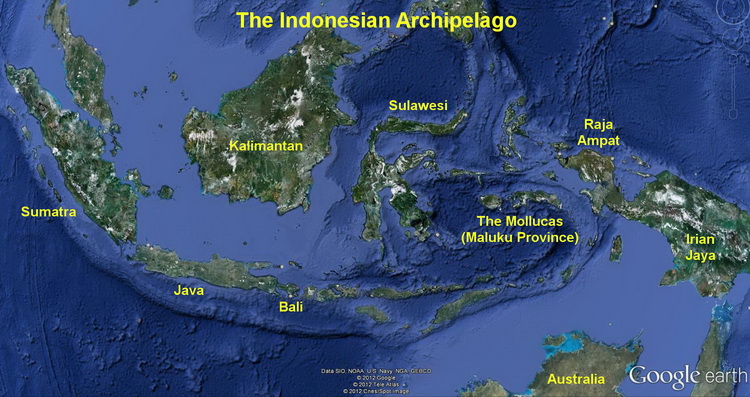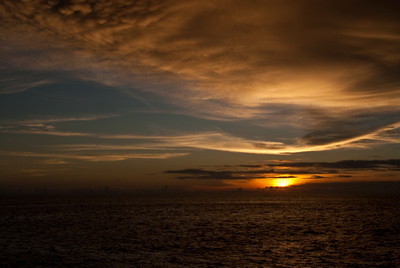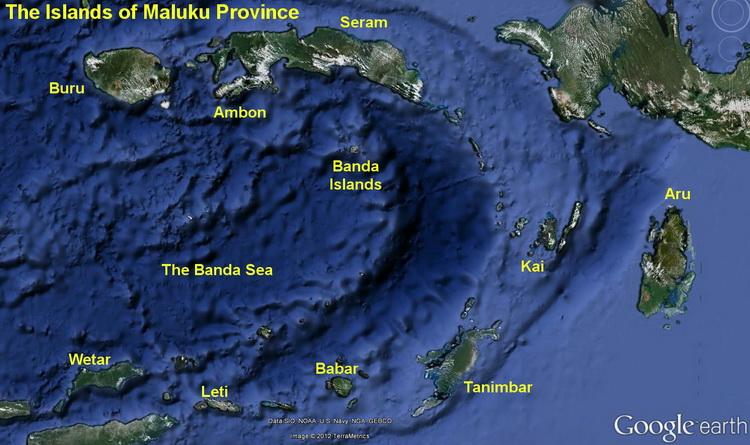At the eastern end of the vast Indonesian archipelago lay the 1000+ islands of the Mollucas, now known as the province of Maluku. It was in this remote area, with its lush tropical climate and rich volcanic soil, that the exotic spices of cloves, mace & nutmeg originated.

Spices were the first global commodity, and although it seems hard to believe now, they were so valuable the spice trade literally changed the world.
There is some really great diving in Maluku Province and if you are going to journey there, it’s well worth taking the time to learn a little of the unique history of the area, as it makes for some fascinating reading and will add an additional layer of understanding about this very special area of Indonesia.
Diving Indonesia: Maluku Province – The Spice Trade
Spices from the Mollucas had trickled into Europe in small quantities during the middle-ages and gained popularity amongst wealthy people as a way to make poorly preserved meat taste better.
Spices were also perceived to provide a degree of protection against the deadly plagues that regularly ravaged Europe at that time, making them a highly sought after and expensive commodity.
The rise of the Republic of Venice in the 12th century, and its control of the key Mediterranean seaways, allowed it to dominate European trade and completely monopolize the spice trade for the next 300 years. The Venetians and their Arabic trading partners effectively had a stranglehold on the flow of these precious spices, which were literally worth their weight in gold.

The armed and very dangerous Arab traders controlled the incredibly lucrative “land route” by which the spices made their way across the Arabian Peninsular to the Mediterranean Sea. They cleverly kept the flow of spices at a steady trickle, which hugely inflated the price and their profit margins. They also created a deep & lasting mystique about the source of the spices and the Spice Islands themselves, so as to confuse & intimidate potential rivals.
The rise of the Turkish Ottoman Empire and the seizure of Constantinople in 1453 ultimately led to the closure of the land route & the end of this hugely profitable monopoly.
It also triggered the “age of exploration” – a two hundred year period when the major powers of Europe sent sailing ships captained by the likes of Christopher Columbus, Ferdinand Magellan and Vasco Da Gama to find & control the source of the spices.
In the process of seeking out the legendary Spice Islands Columbus discovered the New World of the Americas, Magellan’s expedition circumnavigated the world for the first time and Da Gama rounded the Cape of Good Hope at the tip of Africa & established the sea route to the Indian sub-continent.


The Portuguese were the first to reach the Mollucas and seize control of the spice trade, using the immense profits to finance their plans for a global colonial empire.
But by the end of the 16th century the Dutch arrived with their bigger and better ships & guns and stronger financial backing, and within a year they had established total, but very brutal, control over the area and ruled supreme from their main base in Batavia, now called Jakarta.
The Dutch East Indies Company was eventually rivaled by the British East Indies Company that sought the same prize and the two companies engaged in a protracted struggle for control of the spice trade.
It was during this struggle that the British claimed & occupied the tiny island of Run in the Bandas where nutmeg trees grew in abundance.
Hostilities were eventually ended by the Treaty of Breda in 1667, and so determined were the Dutch to regain Run & its nutmeg trees, that they agreed to exchange it with the British for the island of New Amsterdam in the New World.
New Amsterdam is now known as Manhattan Island…
Next Page: Overview of Ambon Island
